Protect Your Home, Health, and Wallet: Understanding the Risks of Hiring Unlicensed Plumbers
When plumbing issues spring up unexpectedly in your home, you may initially feel frustrated and ready to resolve the problem as quickly as possible. You may even be tempted to try and fix the problem yourself, even if you have no plumbing knowledge or skills. However, when a toilet or sink is not working properly, it does not have to be a headache to find a solution. Hiring a licensed plumber who does safe, professional work will save you time, stress, and money.
But notice a key part of the solution — it’s important to specifically hire a licensed plumber to work in your home. Below, we’ll guide you through some of the potential consequences of unlicensed plumbing work occurring in your home, so you won’t have to think twice about who to call the next time you notice a leak or have a blocked drain or a malfunctioning toilet.
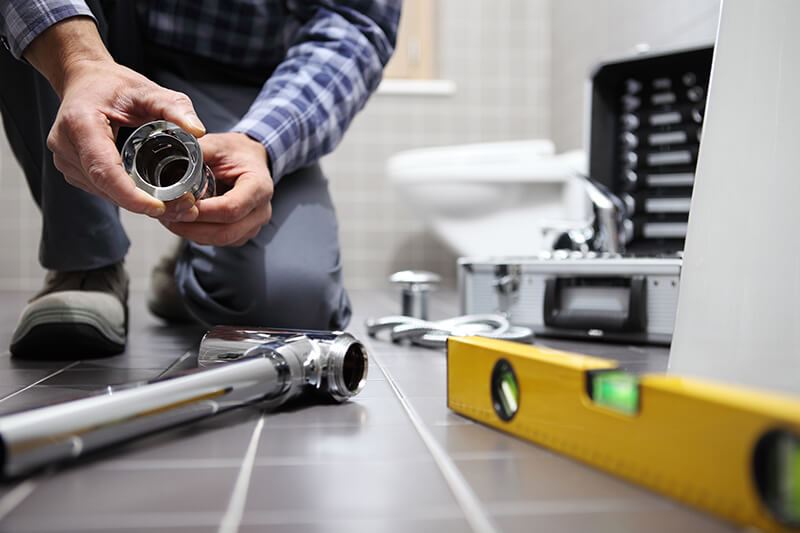
What is a Licensed Plumber?
Before understanding why it’s important to use licensed plumbers, it’s helpful to learn more about what it means for someone to be a licensed plumber. While the exact requirements for a plumbing license vary slightly state to state, almost every state does have criteria that certifies a plumber is licensed. According to Indeed, a licensed plumber, also often known as a journeyman plumber, is a “tradesperson who has an official permit in their state to install and repair fittings and pipes for water supply and heating systems.”
To be certified as a licensed plumber in Florida, the plumber must hold a license from the Florida Department of Business and Professional Regulation. Then, there is a two-part exam to pass, and the plumber must show proof of four years of experience or a combination of experience and related education. Plumbers also need public liability, property damage, and workers’ compensation insurance in Florida.
Most states require a similar combination of either a proof of hours of experience or a certain number of years, as well as a passing score on an exam. Beginning plumbers undergo rigorous training and typically learn in a classroom setting before working as apprentices under other plumbing professionals, so they experience a combination of conceptual and hands-on learning. In addition to learning the fundamentals of plumbing installation and repair, plumbers must understand math, piping systems, electrical wiring, and other complex topics.
You can read about the exact requirements for plumbing licenses in each state here.
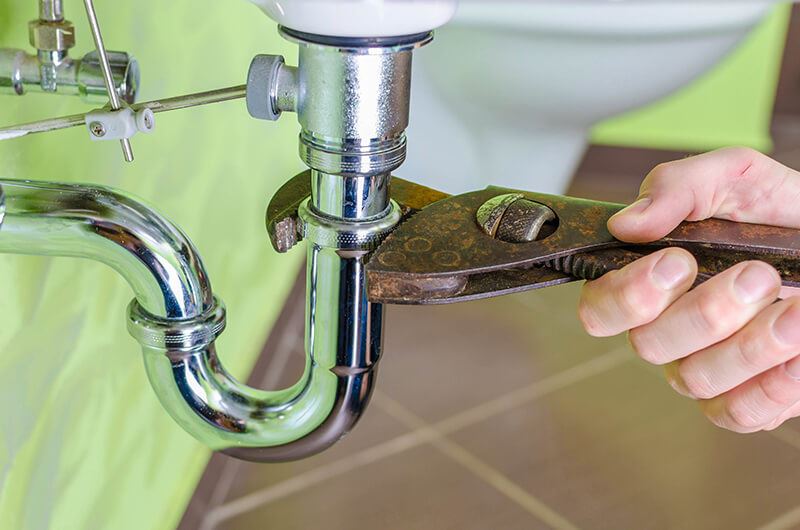
Journeyman vs. Master Plumbers
As mentioned before, the terms “journeyman” and “licensed” plumbers are used interchangeably. However, there is a distinction between a journeyman plumber and a master plumber. A master plumber is the next level of certification for plumbers who have been working for more years than a regularly licensed plumber. According to an article from Chron, becoming a master plumber takes seven to ten years of education and training, as opposed to the average of five years required to become a journeyman plumber.
Is it important to prioritize hiring a master plumber over a journeyman plumber? Not necessarily. What’s important is hiring a qualified plumber who has had thorough training and a solid education under their belt. A master plumber has simply been working longer, but a properly trained journeyman plumber also has in-depth experience and has already solved plumbing problems in many different homes.
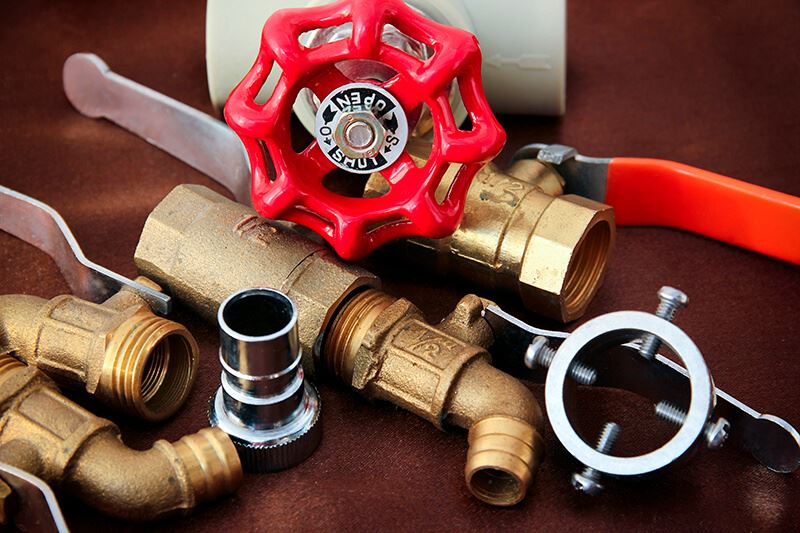
Do Plumbers Need to Be Licensed?
In 44 states, a plumbing license is required for big tasks. It is actually illegal in these states to lay down plumbing lines or complete other major jobs without a license, which can illustrate how important it is to take this hiring decision seriously.
However, Kansas, Missouri, Nebraska, New York, Pennsylvania, and Wyoming do not require plumbing licenses, according to Angi. Despite this technicality, it is still in your best interest to act as if this requirement is in place in every state. You can find excellent, licensed plumbers in every state to work on your home.
Now you have a better idea of what it takes to become a licensed plumber. But why is it such a big deal to hire a licensed plumber? There are actually several serious consequences that can arise from faulty plumbing that you may not have considered. Examples of such consequences can be found in news stories that cover consumers who have been burned by unlicensed plumbing work. Don’t learn the hard way! Read on to learn the main risks of unlicensed plumbing in your home.
Risks of Hiring Unlicensed Plumbers:
- You’re Facing an Increased Risk of Home Damage or Injuries — Including Fires or Explosions
When working with pipes, valves, tanks, electricity, and water, accidents that cause injuries or damages can occur. It takes a trained professional to know the procedures to handle a job safely. An unlicensed plumber will not have received in-depth training on how to properly and safely work with different plumbing parts, and fires or explosions could occur. If that happens, what was a simple plumbing issue in your home has suddenly become a much more dangerous situation.
When hiring a plumber from Bergau Home & Commercial Services, you can rest assured all plumbers are licensed, experienced, and efficient workers who prioritize safety, whether dealing with clogged pipes, sewer line replacements, or water line replacements.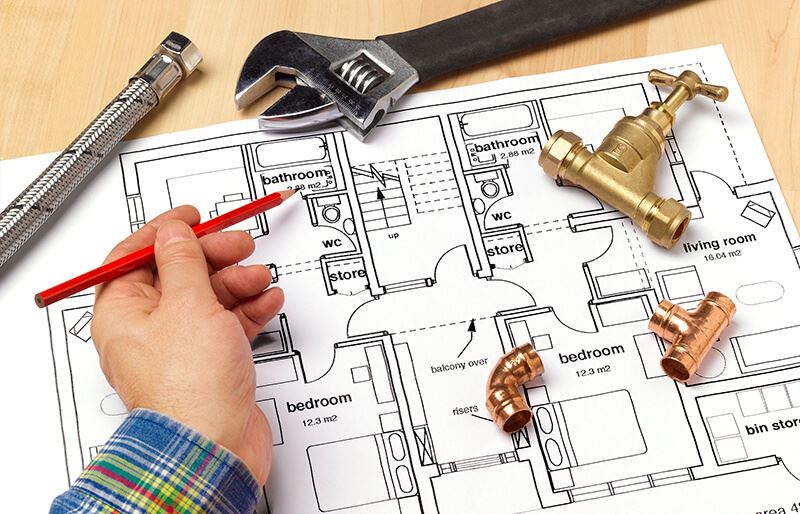
- Faulty Work is More Likely from Inexperienced Plumbers
In addition to keeping everyone safe, when you hire a plumber, you certainly want to resolve the issue quickly and competently. There’s a reason plumbers go through critical training to earn their licenses; they learn how to solve all different types of plumbing problems without too many bumps in the road. Although you may even think you can handle a plumbing job on your own, the level of skill and experience required to reach effective solutions can easily outstrip the abilities of the average homeowner. Remember, being handy does not mean you can safely and successfully take the place of a licensed plumber.
Below are specific examples from Healthline of what can go wrong when an inexperienced plumber works in your home:- Burst pipes that lead to flooding
- Contaminated water
- Fires
- Permanent water damage
- Sewer gas
- You’re Facing an Increased Risk of Home Damage or Injuries — Including Fires or Explosions
- Unlicensed Plumbers Typically Aren’t Covered by Insurance
Because plumbing can be a dangerous line of work, you want your plumber to be covered with insurance while working in your home. If an unlicensed plumber gets injured on the job, you could be liable. Also, if flooding or other damages occur in your home, you could have to pay out-of-pocket.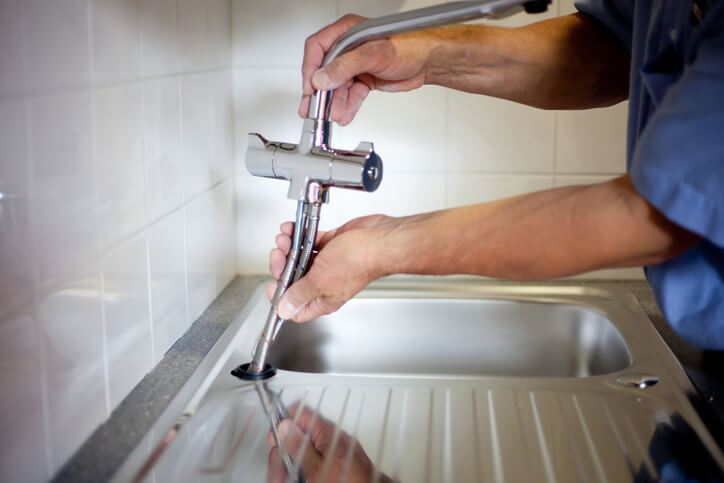
- Unlicensed Plumbers Can’t Pull Permits in Many Locations
It depends on where you’re living, but your local ordinances could require contractors to have permits before working. A plumber without a license would not be able to obtain this permit, which would put your project at a standstill. Of course, when you’re dealing with a bad plumbing issue, time is of the essence. You’ll save time and headaches by hiring a licensed plumber in the first place.
How do you know if a job needs a permit? According to The Spruce, you can most likely check for plumbing permit requirements with the building and safety department in your county. It can be as simple as an online search; many counties will list their permit requirements on their website. This list will also give you an idea of what contract work needs to be permitted. If you are unsure if a permit is required, you can double check by calling the county department’s office.
According to The Spruce, the following jobs almost always require permits:- Re-pipes: This job, which involves changing out all the water supply pipes in a home, requires a permit, and a licensed plumber.
- Drain line replacements: This can be dangerous, so you’ll want to make sure you have a permit.
- Sewer replacements: Sewer lines involve safety risks, so permits are often required.
- Replacing a water heater: This is considered an intensive, involved process that requires a permit. There are even water heater safety regulations to be considered with this process.
- Moving plumbing to a new location: A remodel will likely require a permit in your area.
- You Could Be Dealing with Failed Home Inspections
It’s the worst nightmare of a homeowner who is trying to sell their home—a negative or failed home inspection. If you’re looking to sell your home and the buyer decides a final deal is contingent on a home inspection, you won’t want to worry about problematic plumbing. Having a licensed plumber handle the complexities of plumbing issues will provide peace of mind when your home is being inspected.
- Unlicensed Plumbers Typically Aren’t Covered by Insurance
- You’ll Be Paying More Money in the Long Run
The appeal to hire an unlicensed plumber may be that you think you can save money. However, due to the above risks related to liabilities, incompetent efforts, potential injuries, and possible long-term damage, the likelihood is you’ll end up paying more out-of-pocket in the long-term. Short-term cheap prices do not mean you’re making an economical choice—you’re actually risking your wallet by not hiring a licensed professional.
Bergau Home & Commercial Services combines the best of both worlds: experienced, licensed plumbers who will do excellent work in your home at an affordable price.
Now you have a better understanding of what can go wrong when hiring an unlicensed plumber. But does this mean hiring a professional licensed plumber is difficult? Not at all!
Next time a plumbing problem pops up in your home, simply consider the basic steps below when hiring. This video from On Property can also serve as a complementary guide.- Ask Friends for Recommendations: Sometimes word-of-mouth can be a great way to receive insights into the contract work you can expect to receive. Ask a trusted friend or family member for solid recommendations; likely everyone you know has had to hire a plumber at some point.
- Check Out the Plumber’s Website: Most contractors have some type of online presence. If you can’t find any resources online where reviews or accessible contact information is listed, that may be a red flag. If you do find an online presence for the plumber you are considering, you should be able to read about other customers’ experiences, which can be a helpful indicator of what you can expect.
- Ask To See Your Plumber’s License: Most licensed plumbers carry their state licenses with them, and they’ll have no problem producing it for you.
- Check Your State’s License Board: According to an article from Angi, many cities and states have an accessible registry of licensed plumbing contractors. A quick online search or brief research with the Department of Labor in your state can give you the peace of mind of knowing your plumber is officially on the books.
- Check With a Trade Organization: Reputable plumbers often belong to trade organizations. You can search national organizations, such as the American Society of Plumbing Engineers (ASPE) or a local organization to see if a plumbing contractor’s name is listed. However, it does not necessarily mean a plumber is unlicensed if they are not a member of a national or local organization, it can just be an extra indicator of quality and professionalism.
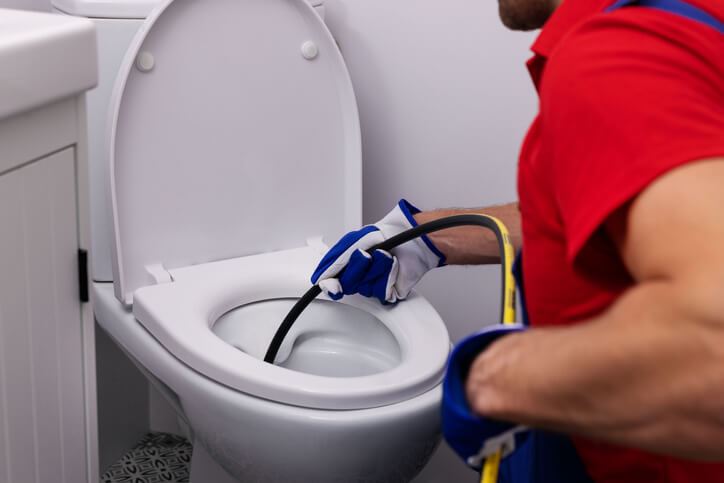
- You’ll Be Paying More Money in the Long Run
Hiring a great plumber for an affordable price who can problem-solve efficiently does not need to be a headache. At Bergau Home & Commercial Services, we have 50 years of experience backing up our work, and our 100% customer satisfaction speaks for itself. Our licensed, insured plumbing experts are happy to help you schedule your testing, inspection, or repair of any plumbing problems. We get the job done the right way. Plumbing problems wait for nobody, which is why we’re available 24/7.
Call us at (239) 291-5025 or visit our website to .
TL;DR: Hiring a plumber without a license is a risky decision.
Hiring a plumber without a license is a risky decision as it will cost you time and money and involves several potential problems, including unexpected expenses and even home damages. A licensed plumber, who has undergone proper and comprehensive training, will be able to fix your plumbing issues in a safe and effective manner.
Unlicensed Plumbers Can’t Pull Permits in Many LocationsIt depends on where you’re living, but your local ordinances could require contractors to have permits before working. A plumber without a license would not be able to obtain this permit, which would put your project at a standstill. Of course, when you’re dealing with a bad plumbing issue, time is of the essence. You’ll save time and headaches by hiring a licensed plumber in the first place.
How do you know if a job needs a permit? According to The Spruce, you can most likely check for plumbing permit requirements with the building and safety department in your county. It can be as simple as an online search; many counties will list their permit requirements on their website. This list will also give you an idea of what contract work needs to be permitted. If you are unsure if a permit is required, you can double check by calling the county department’s office.
According to The Spruce, the following jobs almost always require permits:
- Re-pipes: This job, which involves changing out all the water supply pipes in a home, requires a permit, and a licensed plumber.
- Drain line replacements: This can be dangerous, so you’ll want to make sure you have a permit.
- Sewer replacements: Sewer lines involve safety risks, so permits are often required.
- Replacing a water heater: This is considered an intensive, involved process that requires a permit. There are even water heater safety regulations to be considered with this process.
- Moving plumbing to a new location: A remodel will likely require a permit in your area.
The appeal to hire an unlicensed plumber may be that you think you can save money. However, due to the above risks related to liabilities, incompetent efforts, potential injuries, and possible long-term damage, the likelihood is you’ll end up paying more out-of-pocket in the long-term. Short-term cheap prices do not mean you’re making an economical choice—you’re actually risking your wallet by not hiring a licensed professional.
Bergau Home & Commercial Services combines the best of both worlds: experienced, licensed plumbers who will do excellent work in your home at an affordable price.
Now you have a better understanding of what can go wrong when hiring an unlicensed plumber. But does this mean hiring a professional licensed plumber is difficult? Not at all!
Next time a plumbing problem pops up in your home, simply consider the basic steps below when hiring. This video from On Property can also serve as a complementary guide.
- Ask Friends for Recommendations: Sometimes word-of-mouth can be a great way to receive insights into the contract work you can expect to receive. Ask a trusted friend or family member for solid recommendations; likely everyone you know has had to hire a plumber at some point.
- Check Out the Plumber’s Website: Most contractors have some type of online presence. If you can’t find any resources online where reviews or accessible contact information is listed, that may be a red flag. If you do find an online presence for the plumber you are considering, you should be able to read about other customers’ experiences, which can be a helpful indicator of what you can expect.
- Ask To See Your Plumber’s License: Most licensed plumbers carry their state licenses with them, and they’ll have no problem producing it for you.
- Check Your State’s License Board: According to an article from Angi, many cities and states have an accessible registry of licensed plumbing contractors. A quick online search or brief research with the Department of Labor in your state can give you the peace of mind of knowing your plumber is officially on the books.
- Check With a Trade Organization: Reputable plumbers often belong to trade organizations. You can search national organizations, such as the American Society of Plumbing Engineers (ASPE) or a local organization to see if a plumbing contractor’s name is listed. However, it does not necessarily mean a plumber is unlicensed if they are not a member of a national or local organization, it can just be an extra indicator of quality and professionalism.


